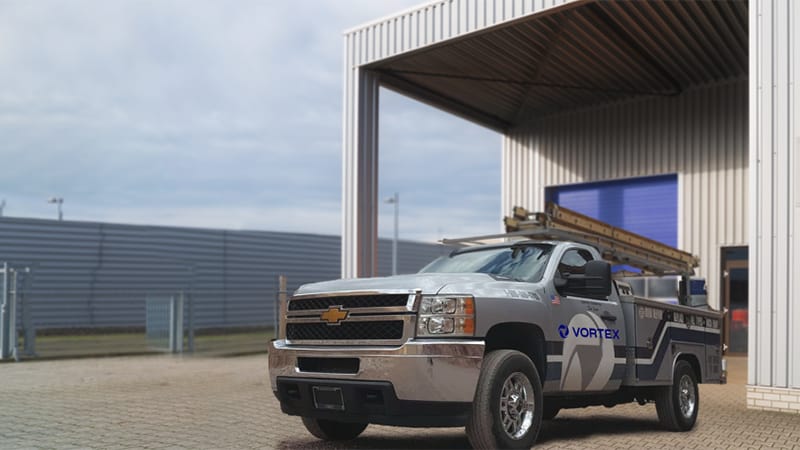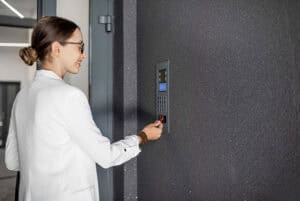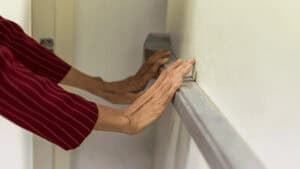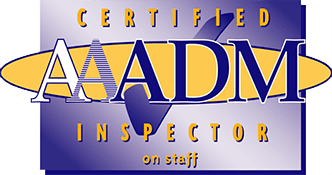What is RFID Access Control?
Radio Frequency Identification (RFID) is a simple, convenient, and cost-effective technology that allows landlords, business owners, and property managers to control entry into their buildings. Besides locking out unauthorized visitors, RFID access control systems are also used to protect restricted areas within commercial facilities. They’re a versatile security solution, perfectly suited to both large and small enterprises, including offices, hospitals, hotels, airports, shopping malls, and convention centers.
How Do RFID Systems Work?
RFID reads, captures, and transmits data using electromagnetic waves. Though RFID can be used to guard anything from a single door to a multi-building complex, every system relies on three basic components.
- RFID Tags. Small devices containing a microchip used to store the person’s digital credential. Normally housed inside a fob, keycard, or badge.
- RFID Readers. Small panels installed on or near the door that emit radio waves that power the tag. When the tag is brought close, it activates and transmits its data to the reader, which captures the tag’s unique identifier so it can be checked against the database of authorized users.
- RFID Control System. A computer server that controls the locking mechanism on the door. It processes the information sent by the reader. Once it verifies the user’s credentials, it unlocks the door and allows them to enter.
Communication between readers and the control system is practically instantaneous, allowing them to process heavy traffic without creating congestion points. However, every component must be functional in order for the system to work ‒ which is why it’s important to establish an inspection and maintenance schedule once they’re installed.
Advantages of RFID Access Control Systems
Unlike keys, RFID access control tags are hard to duplicate. Each one is unique and difficult to forge, making RFID one of the strongest security solutions on the market. In addition to their protection, RFID systems are also a popular choice due to their:
- Convenience. RFID access control systems allow security personnel to remotely monitor, adjust, and revoke user permissions. If an employee leaves, transfers to another department, or is promoted to a new position, their access can be removed or updated in a matter of seconds. Centralization also allows you to customize operating hours, limiting access on weekends or holidays, for example.
- Durability. RFID chips do not degrade with repeated use. Once a card or fob has been issued, it can function for years without the need for replacement. Readers are also water and weather resistant. Their sturdy and airtight design enables them to operate reliably even in extreme weather.
- Scalability. Because RFID systems are managed from a central database, adding more readers, cards, and users is easy and straightforward. Installing new readers does not require extensive rewiring or hardware and the system can manage a large number of tags with minimal effort.
While RFID can be used as standalone protection, it can also be integrated into existing security systems. For example, connecting readers to cameras allows them to automatically upload footage of everyone who activates one of the readers on your property. You can also program the server to store a log listing the tags used to gain access to your building, along with the time, date, and location where they were employed.
RFID Service and Maintenance
Vortex expertise in RFID access control ensures your operations remain safe and secure. Our technicians pinpoint and resolve potential issues before they can compromise your perimeter and allow unauthorized personnel into your facility. Eliminate safety risks and operational headaches by contacting us today for more information about our maintenance, service and repair programs.










